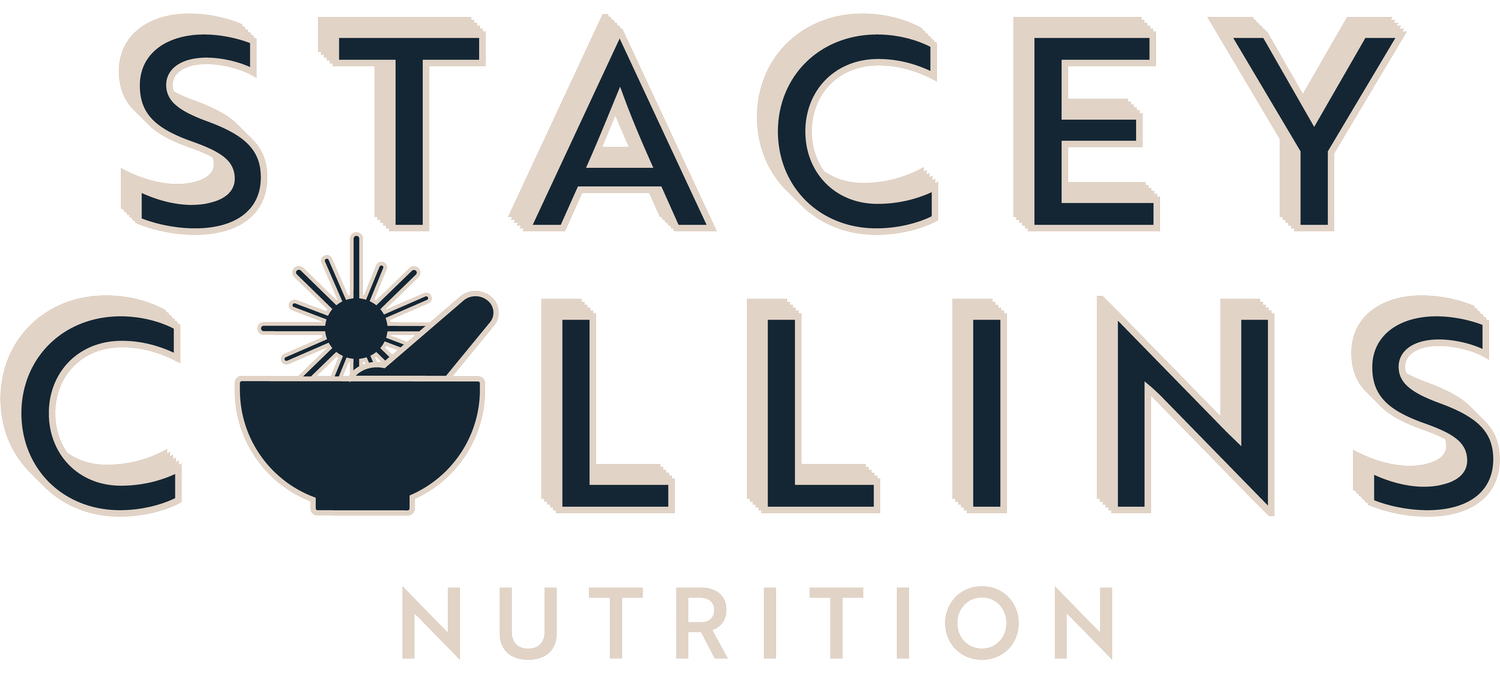Where are the IBD Dietitians? Here are 3 answers and 3 suggestions for how to find one.
“So you want me to find an IBD Dietitian…but how do I do that?”
When I shamelessly plug the profession of IBD Nutrition at conferences (usually with the caveat that privilege and accessibility to GI academic Centers of Excellence makes this immensely easier), this is the number 1 question that I receive. Here are a few of my best guesses as to why finding an IBD Registered Dietitian Nutritionist (RDN) is quite the feat for patients, followed by action items on how to go about finding an IBD Dietitian.
1. It Starts with Education
Not all nutrition education is created equal, and this is not widely available information. Registered dietitian nutritionists are nutritionists; nutritionists are not dietitians. In the U.S., RDNs have standardization of education, over 1200 supervised practice hours of hands-on experience, and pass a federal board exam in order to be eligible for state licensure to practice medical nutrition therapy, which includes a nutrition diagnosis and therapeutic counseling services to help manage diseases(1).
But people who have IBD need more than RDNs with general education and clinical experience to be especially useful for IBD, similar to needing more specialized help from a GI doctor than would be offered by a general family physician. The European Society for Enteral and Parenteral Nutrition suggests that dietitians in the management of IBD have special interest and additional training in IBD(2).
ACTION ITEM
If you find a nutrition professional that you might want to work with, you can start by asking them:
“Do you mind sharing your credentials with me?”
ESPECIALLY if this person is virtual. Patients can usually see diplomas and certificates on the walls of a provider’s office in-person, but in order to make sure that you’re finding someone optimal to help, you might have to ask explicitly for their credentials.
“How many patients with Crohn’s or ulcerative colitis you helped?”
With IBD, it’s usually safest not to be an outlier.
“Do you actively seek out training opportunities for Crohn’s and ulcerative colitis nutrition? How do you stay up to date with the latest research and apply it to your practice?”
This is an excellent way to both gauge interest and expertise specific to IBD.
2. Lack of Standardization of Speciality Education in the Dietitian Field
Bad news: There’s no way to guarantee that a person’s interest matches their expertise, since there are currently no fellowship programs or credentialing exams to ensure that a person is IBD-experienced.
GOOD NEWS: IBD nutrition fellowship programs are currently in the works! Cedar’s Sinai are right now accepting applications for a paid IBD training fellowships for dietitians interested in IBD nutrition. Additionally, there is a credentialing exam in the works through the Academy of Nutrition and Dietetics for dietitians wishing to have additional training and expertise in GI Nutrition. More on this soon to come, too.
3. Lack of Research
There is strength in numbers, and after enough patients asked their GI doctors, “What can I eat?” we now have documented evidence that there is patient interest in nutrition, and therefore it matters(3).
Your patient interest continues to direct a volume of research to better understand nutrition in IBD. However, patients are often met with a diet handout instead of individualized counseling from IBD dietitians, which is not how nutrition care is being practiced in the research world. Instead of handouts, research participants are often given multiple access points to IBD-experienced dietitians. Still, proving the need through research to defend the need for staffing IBD dietitians as part of a medical team has been an uphill battle, even while guidelines exist urging centers to include IBD-experienced dietitians as part of the multidisciplinary care team to help manage IBD(4).
Action Item
If you have the capacity, ask your GI doctor to staff an IBD dietitian. By asking, “What can I eat?” patients themselves have directed more research aimed at better understanding nutrition in Crohn’s disease and ulcerative colitis, both how it influences inflammation and/or impacts a patient’s quality of life. Most nutrition research provides patients consistent access to an IBD-experienced dietitian; not a diet handout and well-wishes. When you’re inevitably given a diet handout, ask for individualized nutrition counseling instead, because a paper handout promoting generalized nutrition without evidence-based individualization is nothing more than a band-aid on a system that is poorly set-up to be patient-centric. Patients both deserve the help and historically have been the ones to have to ask for it to bring about change.
Conclusion: There Are a Number of Reasons Why an IBD-Experienced Dietitian May Be Difficult to Find
Nutritionists? Registered Dietitian Nutritionists? The path to finding a licensed, credentialed nutrition professional is not straightforward, and the burden to find a well-qualified nutrition professional
RDNs lack standardized specialty education and credentialing to signal to IBD Centers that their training is sufficient to treat patients, although this will soon be improving. This might make IBD Centers hesitant to hire.
Since staffing for medical careers often relies on existing research proving the need for a position to be funded, more research is needed…and more is coming.
Action Items You Can Put into Practice
IF (and only if) it’s in your capacity, as a patient, you can ask your IBD GI doctor for an IBD-experienced dietitian. Even if IBD RDNs aren’t on staff, asking signals the need for demand…or more research.
If you’re given a handout, ask to see an IBD-experienced dietitian instead. Patients deserve individualized, evidence-based care from knowledgeable IBD-experienced registered dietitians. Perhaps this could result in institutions investing in training their tenured dietitians.
If you come across an IBD RDN online and think you’d like to work with them virtually, ask them about their IBD-specific experience and/or training. If you don’t think they’re a good match, ask if they can refer a colleague in this space; most RDNs are happy to help patients find people who can best support them.
You’re welcome to reach out for a 30-minute consultation to talk about what working together for your optimal IBD nutrition might look like, or ask about referrals to other IBD dietitians in this community that I trust.
Frequently Asked Questions About Finding IBD Dietitans
-
Several factors contribute to this difficulty:
Educational Variability: Not all nutrition education is standardized. Registered Dietitian Nutritionists (RDNs) undergo rigorous training, but specialized education in IBD nutrition is limited.
Lack of Specialized Training: Currently, there are no standardized fellowship programs or credentialing exams specifically for IBD nutrition, making it hard to identify dietitians with specialized expertise.
Limited Research and Resources: The evolving nature of nutrition research in IBD means fewer dietitians have access to up-to-date, specialized knowledge.
-
Consider asking the following:
"What are your credentials and educational background?"
"How many patients with Crohn's or ulcerative colitis have you worked with?"
"How do you stay updated with the latest research in IBD nutrition?"
These questions can help assess their expertise and experience in managing IBD.
-
Yes, initiatives are underway:
Cedars-Sinai is developing paid IBD nutrition fellowship programs for dietitians.
The Academy of Nutrition and Dietetics is working on a credentialing exam for gastrointestinal (GI) nutrition.
These developments aim to enhance specialized training for dietitians in the field of IBD.
-
Patients can:
Discuss the importance of specialized nutrition care with their gastroenterologists..
Request referrals to dietitians with experience in IBD.
Participate in patient advocacy groups to raise awareness about the need for specialized nutrition services.
These actions can encourage healthcare providers to integrate specialized dietitians into multidisciplinary IBD care teams.
References:
“Medical Nutrition Therapy.” Centers for Disease Control and Prevention, Centers for Disease Control and Prevention, 1 Feb. 2021.Simon, Patrick. “The Role of the Dietitian in the Inflammatory Bowel Disease Multidisciplinary Team.” ECCO, 2022Knight-Sepulveda K, Kais S, Santaolalla R, Abreu MT. Diet and Inflammatory Bowel Disease. Gastroenterol Hepatol (N Y). 2015Bischoff, Stephan C, et al. ESPEN guideline on Clinical Nutrition in inflammatory bowel disease. Published online: January 13, 2023


